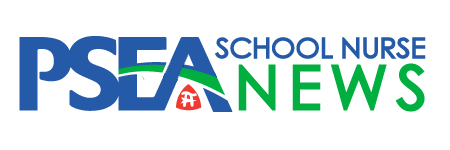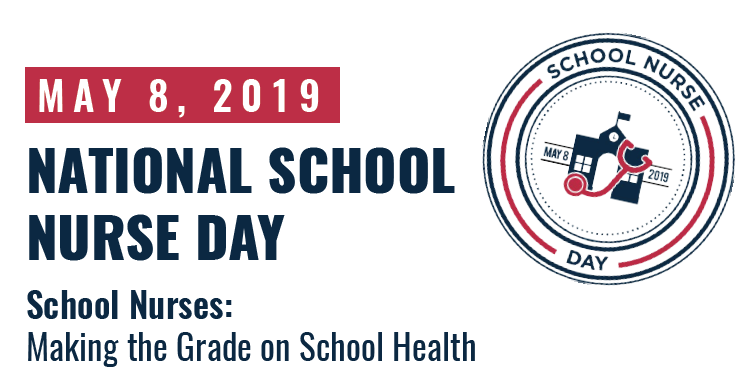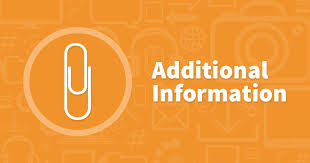
Self-Care Stations
Karen Lunger has been a registered nurse for 38 years and developed the idea for a self-care station as she was attending graduate school at Bloomsburg University in 2004. At the time, Karen was fulfilling a practical experience at a high school and was inspired to make a difference in the crazy busyness of the school nurse's office. She quickly realized that many students came to the nurse's office for minor issues that they could easily be taught to take care of themselves. So, the idea of a self-care station was developed to accommodate the needs of both the school nurse and the students. It would benefit the students by showing them how to be more self-sufficient in treating minor first-aid issues. It would also afford the school nurse more time to concentrate on those areas that revolved around the more advanced skills of a school nurse.
Karen worked for 29 years at Geisinger Medical Center in Cardiology and the Emergency Department (ED). When she started out as the school nurse at Shikellamy High School, she continued to work in the ED at Geisinger on weekends and during the summer months for five more years. Karen has been the Shikellamy High School nurse for 14 years and absolutely loves it! In 2017, she received the Pennsylvania School Nurse Excellence award for the North Central Region and says, “It is truly a blessing to work in the same district where I was born and raised, as well as the district in which I raised my children.”
Self-Care Document
Emergency Guidelines for Schools
The 2018 edition of Emergency Guideline for Schools from the Emergency Medical Services for Children is available for electronic download at www.paemsc.org Select the “current projects” tab and then look under “For Schools.” These guidelines are designed to assist school staff in responding to pediatric emergencies. The purpose of the manual is to provide general guidance based on generally accepted courses of action when confronted with medical or trauma emergencies. This is a great resource for ALL staff in your building, including bus drivers!
Let Them Know!
You may not have thought about this before, but legislators are frequently confronted by concerned constituents regarding school issues. And nursing services is not left out of the conversation. If you, as the medical professional in your school, do not sit down and talk with your legislators, they will never know your concerns. Legislators want to hear about your concerns and get your ideas and opinions on topics on which they vote. YOUR ideas effect change. One school nurse was involved in making her legislator aware of the absence of vaping laws, and resulted in HB97, as discussed below.
Legislators recognize that Certified School Nurses, as well as other pupil services professionals, play a critical role in supporting the health, well-being, and safety of students in the commonwealth. However, it is increasingly difficult for professionals to meet the ever-more complex needs of their students without improving staffing levels for school nurses, psychologists, counselors, and social workers. PSEA members recognize this challenge as well, resulting in a special New Business Item at the May 2019 House of Delegates directing PSEA staff to continue their advocacy for improved pupil service professional staffing levels in schools. PSEA has been working diligently with members from both chambers of the PA Legislature and with members of both parties, resulting in the introduction of a Student to Professional Ratio bill in each chamber. Read the House Co-Sponsorship Memo and look for bill introduction in the coming days.
Closing the Vaping Loophole
Disciplinary action can be taken by your school according to school policy but there is no criminal offense in Pennsylvania for vaping. PA state law allows police to charge minors for trying to buy tobacco products or bringing them to school. This is not the case for vaping. Currently federal law only makes it illegal for stores to sell vaping products to minors. House Bill 97, introduced by Rep. Kathy Rapp, would make it illegal for electronic nicotine delivery systems (ENDS), to be sold, consumed or given to minors in Pennsylvania. The bill would also outlaw ENDS on public school grounds. This bill passed the House unanimously on March 25 and is currently in the Senate Judiciary Committee. When you go to meet with your senator, ask them to support House Bill 97.
License Renewal Updates
RN licensing fees will increase beginning Fall 2019. The RN license fee will increase from $65 to $122 CRNP license fee will increase from $75 to $81.
If you have a valid School Nurse Certificate, you are meeting the 30-hour CEU requirement through your Act 48 requirements. You still must complete the mandated child abuse reporter training under Act 31 of 2014. On the day you renew your nursing license, print proof of your valid CSN certificate from the Teacher Information Management System (TIMS). If you are audited, this is what you should submit to the PA State Board of Nursing, (not proof of individual Act 48 hours).
Paperless Records
If your school is going paperless here are some things to consider:
- Confidentiality! Who is scanning the records?
- What happens to the original document?
- How are the records transferred?
New Vision Equipment for 2019?
You may want to wait before purchasing expensive vision screening equipment. PSEA School Nurse Section is currently working with PASNAP to make recommendations to the Department of Health for an updated vision screening manual. Ongoing research queries indicate that instrument-based testing may be used as an adjunct vision screening method but may not be appropriate as an all-inclusive screening tool.
Field trips
As an organization we hear and understand your concerns when our students are leaving the safety of our buildings and enjoying field trips. We realize there are many differences, across the state, in the medical/medication management during field trips. We are taking your concerns to other organizational bodies that may be able to create an impact. Understand that field trips help to enrich the educational process. We have constructed field trip considerations for one organization that was seeking our assistance. In the meantime, please keep the following attachments in mind. Please take the time to speak with your education association (EA) to educate them. If there are concerns, please do not hesitate to contact an EA School Nurse Section (SNS) region representative so they may bring your concern to our PSEA SNS board meeting.
Lastly, dispensing medication from the nurse’s office to a non-licensed individual for a field trip is delegation to that non-licensed individual. In Pennsylvania, our license does not permit this act.
PSEA Medication Advisory and the Field Trip Guidelines
Lyme and Tick-Borne Infections
May is Lyme and Tick-Borne Disease Awareness Month, and according to the PA Lyme Resource Network, there are more cases of Lyme in PA than in any other state. The PA Lyme Resource Network has many free resources available to school nurses. They reached out to PSEA School Nurse Section for our assistance when they were creating the school material. So please take time to visit: http://palyme.org/dare-2b-tick-aware/
Please take advantage of these resources and feel free to contact Amy or Michele from PA Lyme. These ladies are great to work with and will be happy to help you in any way they can.
Tick Awareness Flyer




 -
-

